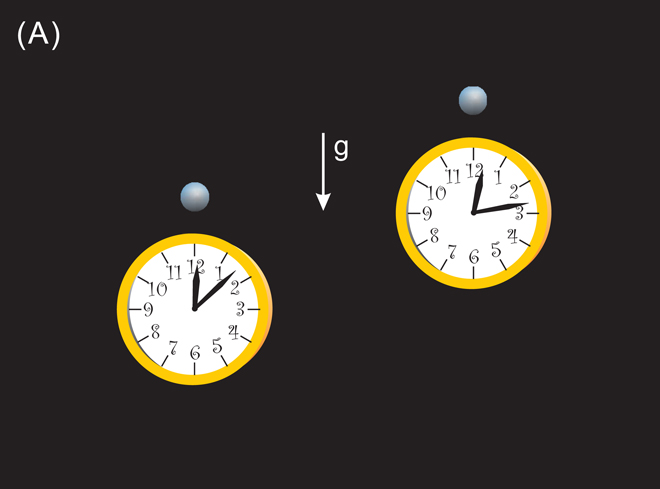37 clock in space
The clock in space:
I boken så träfar Feynman en av Einstein's assistenter och ställer honom en gåta om du är på ett rymdskepp och på rymdskeppet fins en klocka och på marken fins en klocka gåtan går ut på att efter att klockan på marken har gått en timme så måste skeppet landa och klockan på skeppet ska vara så mycket som möjligt och hur fort måste du resa för det? svaret är att det är omöjligt att få klockan på skeppet att gå över en timme så du måste bara vänta en timme för att vinna.
det vi kan räkna ut av detta är Einstein's theory of special relativity and general relativity. som förklarar att alting som har en hastighet och en specifik höjd kommer sakta ner eller spola fram tiden beroende på hastigheten bäst förklarat i texten nedan.
In physics, the twin paradox is a thought experiment in special relativity involving identical twins, one of whom makes a journey into space in a high-speed rocket and returns home to find that the twin who remained on Earth has aged more. This result appears puzzling because each twin sees the other twin as traveling, and so, according to an incorrect naive application of time dilation, each should paradoxically find the other to have aged more slowly. However, this scenario can be resolved within the standard framework of special relativity: Acceleration is not relative, unlike position and velocity, and one twin is accelerated more than the other. Therefore the Twin paradox is not a paradox in the sense of a logical contradiction.
